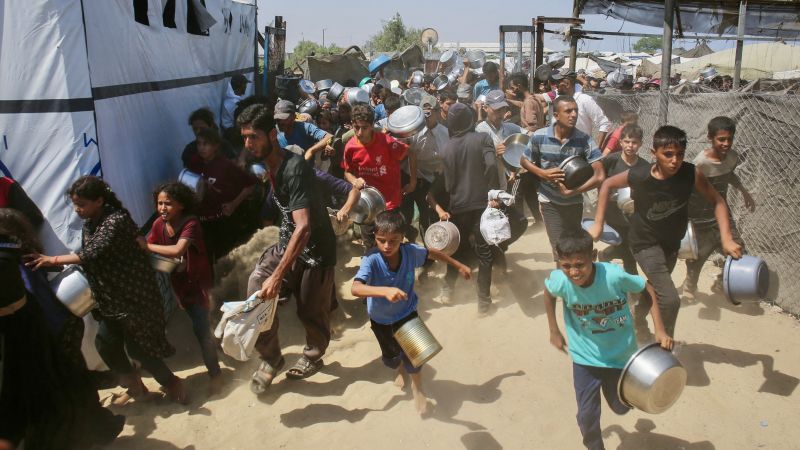US Suspends Visas for Gaza Residents: Implications for Humanitarian Crisis
#gaza #humanitarian_crisis #us_state_department #visa_suspension

Introduction
The recent decision by the United States to suspend visas for residents of Gaza has sparked a social media storm. This move by the State Department comes at a time when Israel's ongoing war and resulting famine in Gaza have reached new extremes, with a devastating death toll of 61,827 so far. This decision has caused uproar and controversy, with many questioning the impact it will have on the already dire situation in Gaza.
Context
The conflict in Gaza has been ongoing for decades, with no clear resolution in sight. The ongoing violence and blockade by Israel have led to a severe humanitarian crisis in the region, with basic necessities such as food, water, and medical supplies becoming scarce. The recent decision by the US to suspend visas for residents of Gaza will further add to the suffering of the people in the region.
Implications
The suspension of visas will have a significant impact on the people of Gaza, who already face immense challenges on a daily basis. This decision will prevent many individuals from seeking medical treatment, studying abroad, or being reunited with family members. It also sends a message of disregard and indifference towards the suffering of the people in Gaza. As an expert SEO blog writer, it is crucial to shed light on this issue and bring attention to the ongoing crisis in Gaza. The international community must take action to address the situation and provide much-needed aid to the
About the Organizations Mentioned
State Department
The **U.S. Department of State** is the principal federal agency responsible for shaping and executing American foreign policy and diplomacy worldwide. Established in 1789 as the first executive department, it serves as the lead institution for conducting U.S. international relations, advising the President, negotiating treaties, and representing the country in global organizations such as the United Nations[2][3][6]. The department is headed by the Secretary of State, who acts as the President’s chief foreign policy advisor and top diplomat, currently Marco Rubio as of 2025[2]. The State Department's core mission is to **promote and protect U.S. interests abroad** by fostering peace and stability in critical regions, opening foreign markets to create American jobs, and addressing global challenges like climate change, terrorism, nuclear proliferation, human trafficking, and humanitarian crises[1][4]. It manages a vast network of embassies, consulates, and diplomatic missions worldwide, safeguarding American citizens overseas and facilitating international cooperation on economic, security, and environmental issues[5]. A key component closely linked to the State Department is the **U.S. Agency for International Development (USAID)**, created in 1961 to administer economic and humanitarian assistance to developing countries. USAID works to end extreme poverty, promote democracy, improve global health, food security, environmental sustainability, and humanitarian relief, aligning its programs with the State Department’s foreign policy goals[1]. With an annual budget of around $38.8 billion in fiscal year 2024, the State Department plays a critical role not only in diplomacy but also in advancing technological collaboration, international trade, and global health initiatives, making it highly relevant for business and technology sectors interested in geopolitical stability and international partnerships[3]. Notable programs include the Professional Fellows exchange, fostering cross-cultural professional development between U.S. and foreign leaders, highlighting the department’s role in building long-term global partnerships[2]. The State Department continues to adapt in an era of rapi















